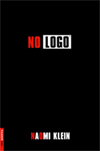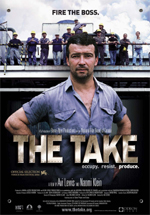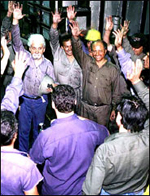Globalization
What It Is“Globalization” is used as a blanket term for the increasing interdependence among the nations of the world in the economic, social, and cultural spheres—as well as many more. It can refer to the practice of a television station airing all around the world news from one specific region, as well as the practice of a foreign company establishing a presence in a new market. Globalization is not limited to the passage of merchandise; what it can also refer to is the transmission of ideas and information across oceans. To say that Naomi Klein is against globalization, however, is a hasty generalization. It is much more accurate to state that she is against parts of globalization rather than all that the term "globalization" has come to represent. Her primary focuses are the economic policies enacted in the name of globalization—policies under the innocuous name of "free trade." What she has come to oppose is the disparity among the rich and poor such policies create and the far-reaching consequences many of the actions have.
As she opposes the economic decisions relating to what is termed the global market, many of her writings name the World Trade Organization (WTO) and the International Monetary Fund (IMF) as her opponents. She feels that the steps both organizations take are based on a double standard, a sentiment which she sums up quite well in her speech at the "International Conference on Globalization" in Ghent, Belgium on October 30, 2001: "when it comes to rich countries, rules are for other people"(Fences and Windows, 82) as she specifically refers to the WTO blocking South African attempts to manufacture patented AIDS drugs while allowing Canada to override a patent for anthrax antibiotic, despite the fact that, at the time of the speech, "Canada still hasn't had a single diagnosed case of anthrax" (Fences and Windows, 82).
Klein also cites the situation in Argentina as an example of the failings of the IMF. Klein comments on how Argentina, in order to qualify for a loan to aid its country, needs to open up its market to even more foreign investors — despite the fact that exactly doing so is, as Klein says, exactly what put Argentina in its current situation. The impoverished country is one of her strongest points against globalization; it was a country which followed the rules of globalization as a poster child for the IMF, and those policies resulted in political and economic ruin. Her documentary, The Take, details the state of affairs for workers in this country. For Klein, globalization isn't just the opening of barriers for a global community; it is both the good and the bad. She views the potential ramifications of such actions, as evidenced by Argentina, as being simply unacceptable. The attempt at "free trade" which forms much of the economic portion of the globalization movements leaves behind far too many broken people, controlled as it is by what she believes is the interest of the corporations who want money.
Naomi Klein isn't against globalization as a whole, only the globalization which runs parallel with free trade. Rather, she defines herself and the movement with which she is affiliated as true globalization, and she views the label of "anti-globalization" as ironic, because she believes that those "in this movement have been turning globalization into a lived reality, perhaps more so than even the most multinational of corporate executives or the most restless of jet-setters" (Fences and Windows, xv). In attempting to fight corporate involvement, she sees people reaching out for information and support across national borders as globalization in its purest form, a true global village made a reality which isolated corporate executives cannot achieve. [top] Her Works
No Logo: Taking Aim at the Brand Bullies (2000)
As the title suggests, No Logo is a book which looks into the negative effects of branding and widespread usage of logos. Throughout this book, Naomi Klein explains to readers how brand names and logos have evolved from simple representations of products to entire ways of life—and how it is detrimental to youth, culture, and people from all walks of life. With graphs, statistics, actual events, and quotes as its support, the observations and analyses offered by No Logo provide a deep insight into the aftereffects of numerous companies' need to sell in a market where consumers grow increasingly immune to the ubiquitous ads that dominate an increasingly larger portion of human life. [top] Fences and Windows: Dispatches from the Front Lines of the Globalization Debate (2002)
Fences and Windows is a compilation of many of Naomi Klein's columns and speeches, which center on themes ranging from the beginnings of the anti-globalization movement to the horrors heaped upon countries enveloped by globalization and to the possibilities for the future. The compilation’s fence motif is used to represent the fences which globalization raises around what should be public resources, around the ability to express views different from the political majority, and even around those politicians who wish for genuine change, as well as the fences which keep intruding influences out of places where they are either unwanted or potentially harmful. The window, on the other hand, is an image which comes as an icon of the future, where people can grasp what was previously locked by the aforementioned fences. The window, above all else, represents possibility. The two — fences and windows — come together to represent the current state of affairs in globalization, where people are locked out with fences from what they need, and where those same people create windows with the ability to let them walk into the future. [top] The Take (2004)
The Take is a documentary of a powerful movement, almost a silent rebellion, which occurred in Argentina after the collapse of its economy. Carlos Saúl Menem became the president of Argentina in 1989, succeeding Raúl Alfonsín, who had installed a socialistic program in Argentina to help the economy. Because Menem was a friend of the Western world and its institutions, he privatized many aspects of the economy, including the post office and telephones, and allowed several foreign companies to take control of those aspects, all in the name of globalization. There was no legislation to regulate the foreign companies’ involvement in Argentina, so when Argentina’s currency began to drop, many of these companies extracted all of their money from the Argentinean economy. With so much money gone, the Argentinean banks were frozen, preventing many people from accessing their life savings. In addition, many factories laid off workers because they felt that they were no longer earning enough of a profit. Because of this, almost 60% of the Argentineans were unemployed.
After poverty had ravaged so much of Argentina, some workers began to organize and take over factories. They formed worker cooperatives and created the slogan “Occupy. Resist. Produce.” The Take looked at one such factory that was taken over, the Forja factory, which originally produced automobiles. Following in the footsteps of many other factories such as Zanon Ceramics, the workers struggled to gain the legal rights to take over the factory and started to work for themselves. They had no bosses or overseers, and everyone earned the same wage. One person commented that what was amazing about this, and what set it apart from communistic regimes, was that there was no one person, no leader figure, who went around and dictated what should be done. The lower classes were rising up out of necessity to expropriate the goods in order to make their own living. What should be emphasized about this practice is that, although it may not be perfect, it was as democratic a process as anything can be. Everybody had a vote, and they voted on what should be done in the future and made almost every decision as a collective. Throughout this film, Naomi Klein and Avi Lewis comment on some alternatives to the way in which capitalism and democracy are working. [top] |
||||||||||||||||





